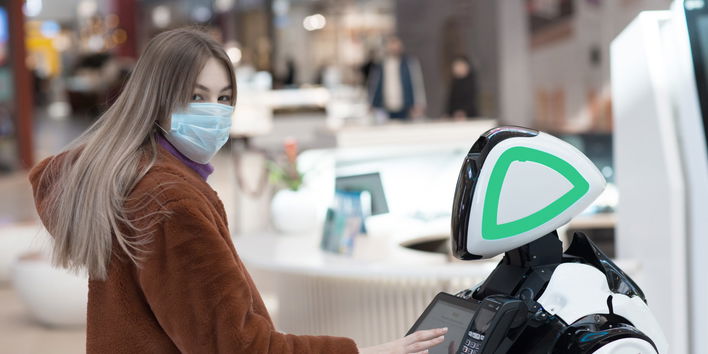How artificial intelligence in retail is resolving operations-critical issues for retailers? One straightforward answer is that you will not have to incur high operational costs due to the infamous "out-of-stock" scenarios.
Data related to the products that your customers are buying, coupled with demographic segregation, helps lower your working capital.
Additionally, it increases your revenue by creating a perfect balance between the product quantities and the right logistical timing.
Naturally, data becomes critical to retail operations' success. It opens a new world of possibilities and opportunities with anomaly extraction and correlations from well-trained AI/ML models.
But do retailers need to invest in artificial intelligence (AI)?
According to McKinsey, using advanced analytics is why some retailers succeed while others fail. It also demonstrate that retail companies using advanced analytics earn 68% more than their competition. This gap is growing exponentially.
The AI in retail market size exceeded USD 2 billion in 2020 and is expected to grow at 30% CAGR between 2021 and 2027.
Traditional analytics was the forever go-to solution for an industry such as retail that is constantly fueled by data. However, modern retailers have discovered previously alluding opportunities with the wave of data processing and smarter business insights because of artificial intelligence (AI) and machine learning (ML).
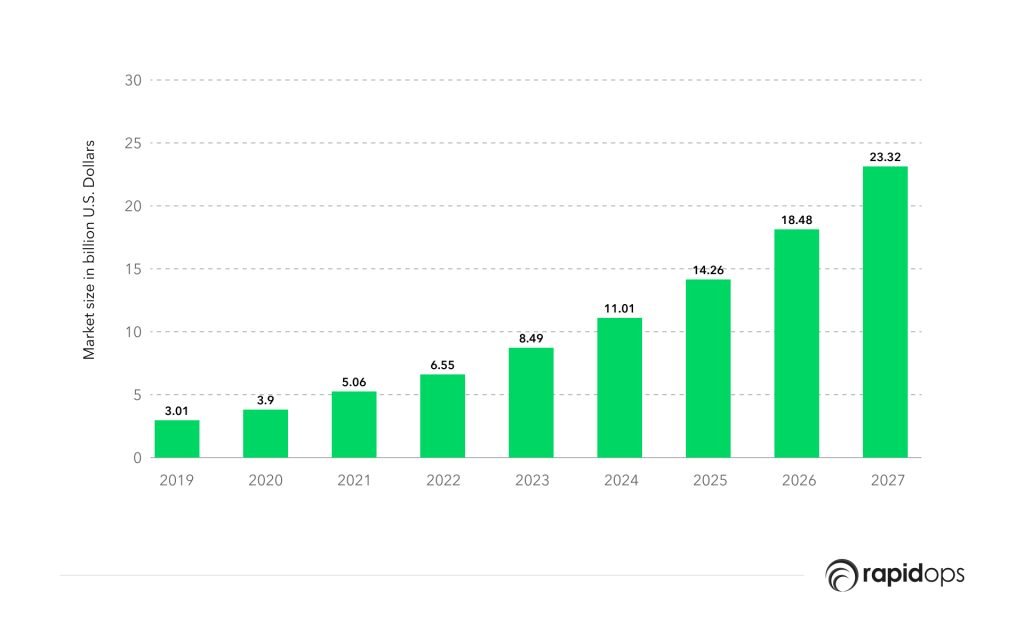
Source: The retail industry's global artificial intelligence (AI) market from 2019 to 2020, with a forecast up to 2027.
Check our infographic to know how AI is revolutionizing the retail industry!
Download Now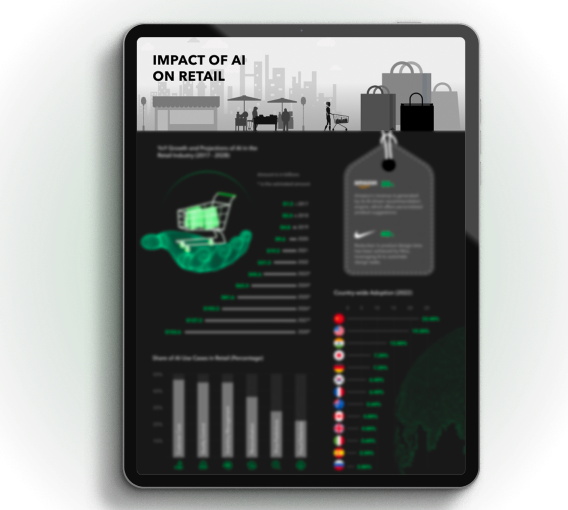
What does artificial intelligence in retail looks like?
When the Covid-19 pandemic brought catastrophic circumstances for many industries, including retail, every business leader opted for technological disruption to be resilient and turn adversity into opportunity.
Artificial Intelligence in retail can do some heavy-duty data crunches with the help of data analytics, machine learning models, etc.
With the rapid market disruption in the retail sector, leaders must rethink their go-to strategies as retail digital transformation becomes a strategic necessity.
And when you have a solid system AI/ML that can help you make faster strategic decisions, you can easily and quickly become more resilient even amongst the heavy competition.
1. LoweBot
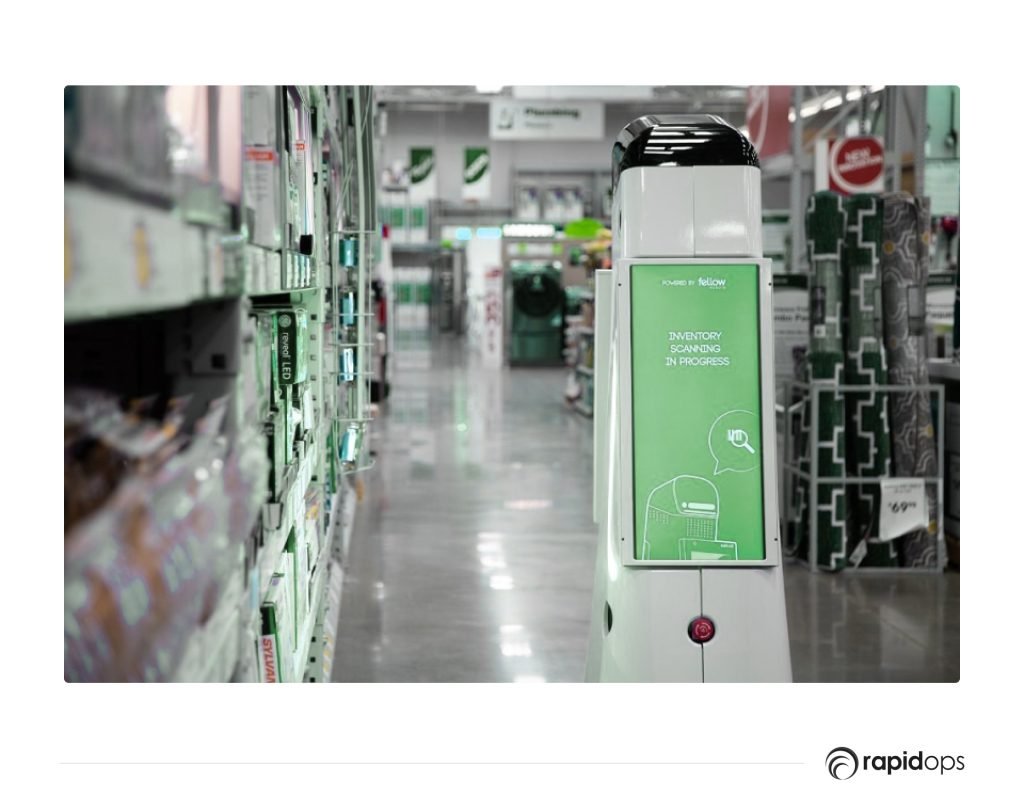
LoweBot, created by Fellow, is a retail service robot first introduced in Lowe's stores in the San Francisco Bay area. These early prototypes could find products in multiple languages and assist customers with finding items while helping retailer monitor their inventory.
2. TallyBot
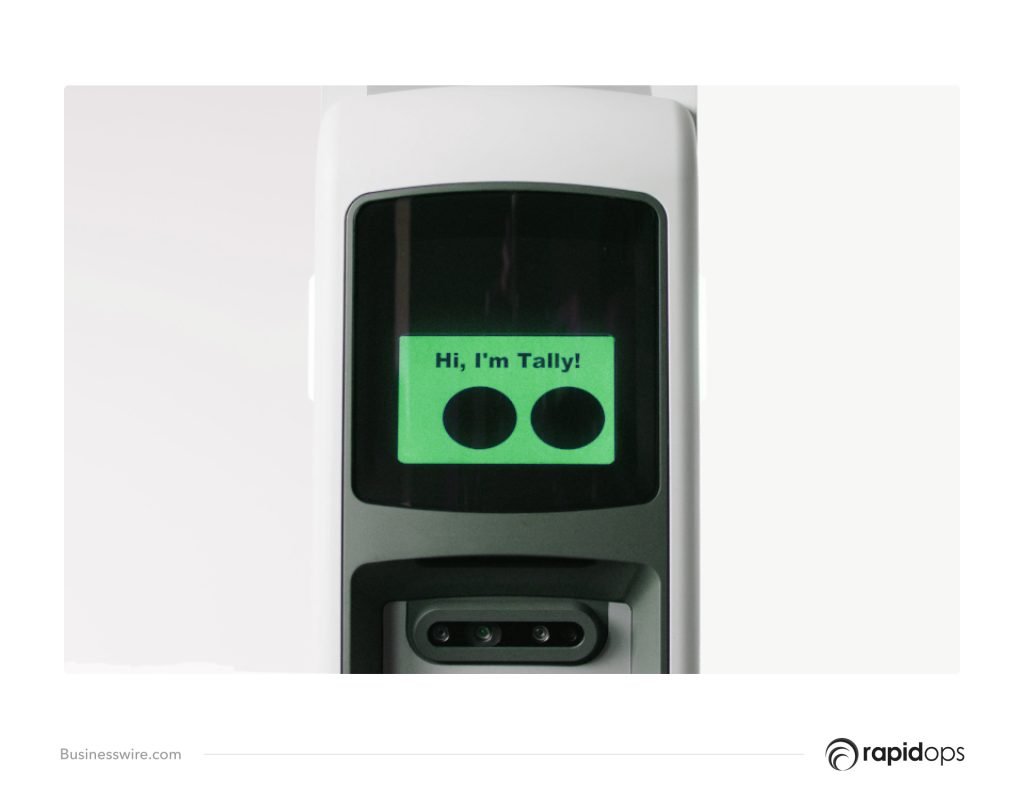
Tally's real-time data collection supports retailers such as Schnucks by ensuring shelves are well-stocked, pricing is correct, and the products customers want are where they expect them to be. Tally has been beneficial to 'Schnucks' success amid the coronavirus outbreak.
Tally has been able to keep track of stocks and replenishment while also minimizing the amount of time employees spend in the aisles, keeping consumers happy and staff safe.
Not just that, the tiny, cute bot has also been able to remove the dreaded manual inventory management task with up to 30 to 100 hours freed for the workforce to focus on other crucial tasks.
3. Pepper Robot
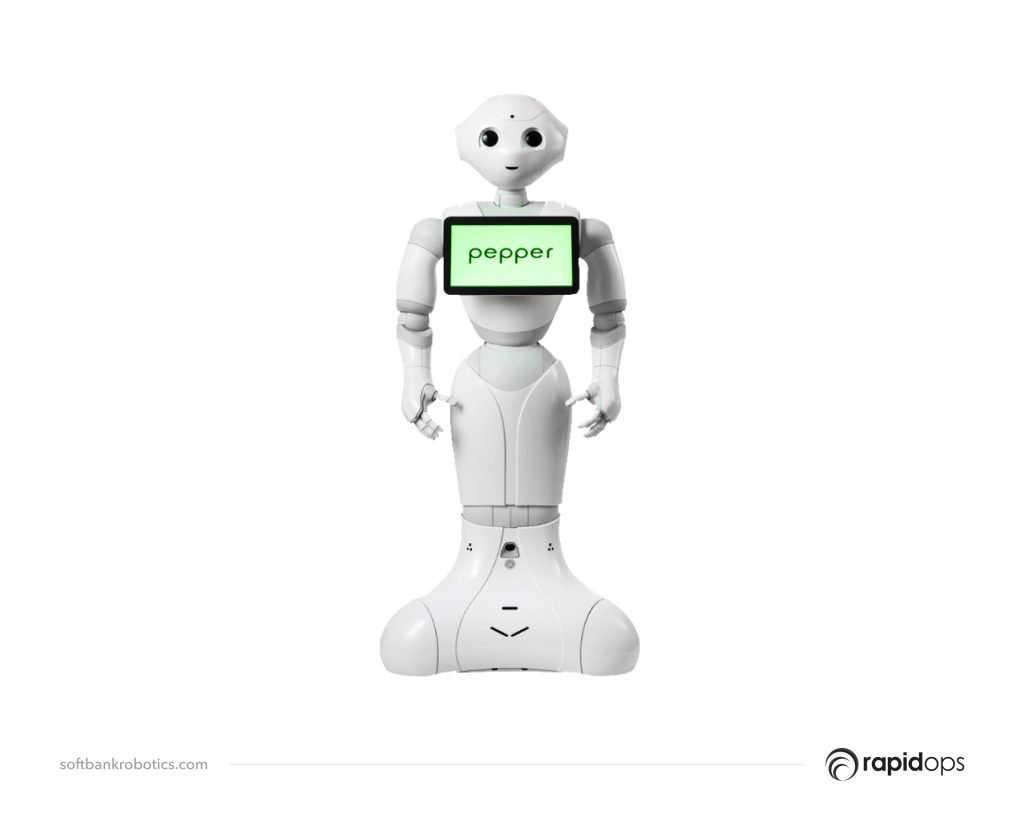
Pepper Robot is designed by Softbank Robotics with the ability to read emotions. The robot can interact with customers, help them navigate the store shelves, and even respond to their queries.
Applications of Artificial Intelligence in retail
From customer-facing experiences to backend operations, AI retail solutions are redefining how retailers manage both in-store and online processes.
Time is of the essence for the retail industry, which has been grappled with disruption over the past decade. While some retail businesses are thriving, others struggle to manage their break-even!
The pandemic has literally vaporized their so-called available timeline for playing "catch-up" in developing agile operating models.
Retailers are running a race to implement cloud architecture that is powered by advanced data analytics, AI, and ML, after witnessing the benefits their competition is reaping.
With its data analytics and automation features, AI can help retailers have an edge over their competition. Let's see how artificial intelligence in retail is helping businesses gain better momentum in this fast-paced market with AI adoption.
As retail automation technology continues to evolve, AI-driven checkout systems are removing friction from the shopping experience.
1. Auto checkouts
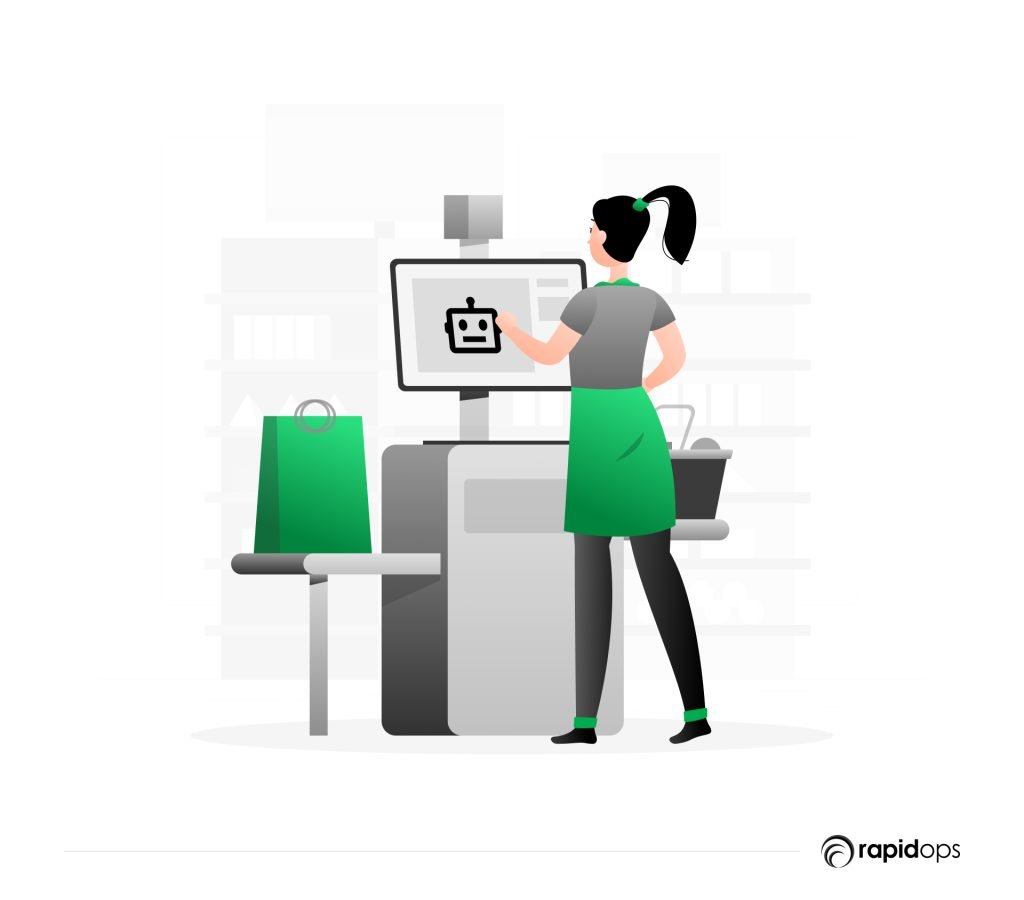
Amazon AI-powered checkout-free stores are one such example. Amazon Go and Just Walk Out are two new shopping technologies that allow you to shop without ever having to wait in line or go through a checkout process.
With Amazon Go, simply place your items in your cart and walk out of the store - your purchase will be automatically charged to your Amazon account.
2. Automated chatbots
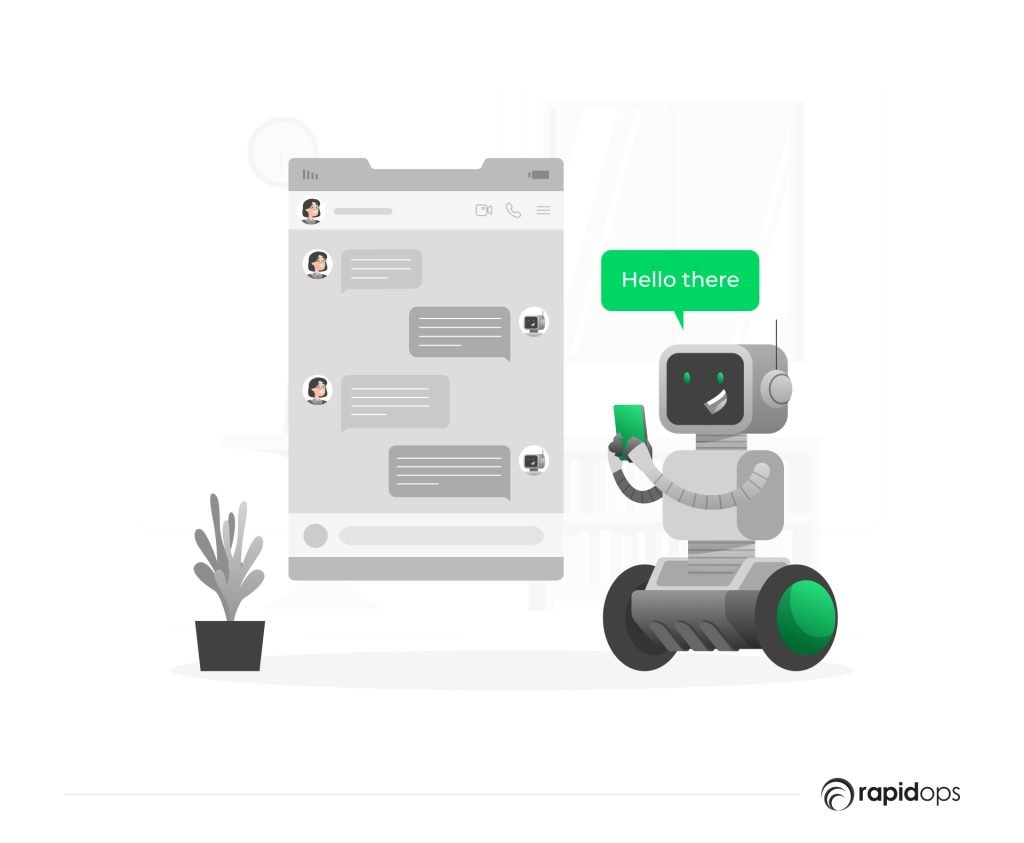
The arrival of conversational AI chatbots has eased the way retailers satisfy consumer needs and resolve issues. Now retailers can -
- Provide superior customer service thanks to data analytics backed by AI/ML
- Send out notifications about new products and items similar to their previous purchases
- Suggest items that complement their purchases or generally used by customers that fall in similar demographic category
A chatbot may recommend a snapback to complete the style if a client has previously purchased a pair of black jeans. To help their consumers see through their collections, Tommy Hilfiger and Burberry, as well as less well-known retail outlets, have implemented chatbots.
3. Product categorization
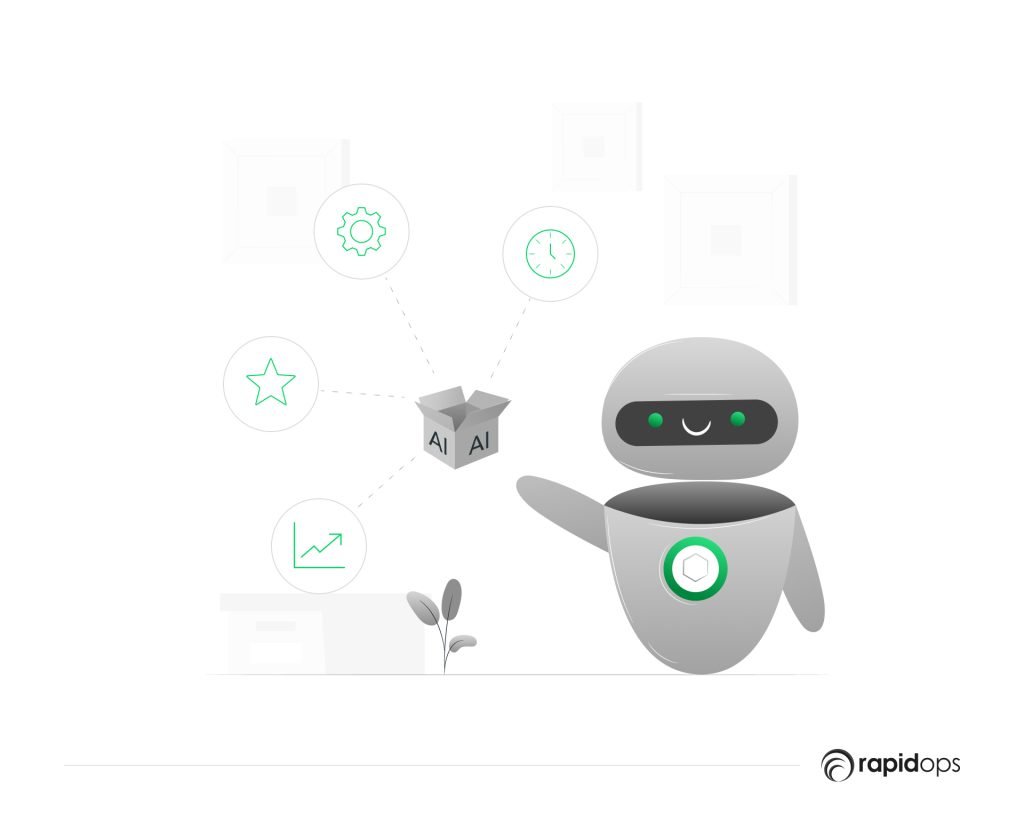
AI-based technology combined with machine learning algorithms can assist retail stores in regulating product categorization to guide customers looking for specific products without rummaging through undesired aisles.
This can also enable the stores to get real-time inventory and helps them efficiently replenish the stocks. If the retail store decides to run a sales campaign, their inventory will be well-managed and enhance the customer experience who visit the stores to get their favourite product.
4. Setting competitive pricing
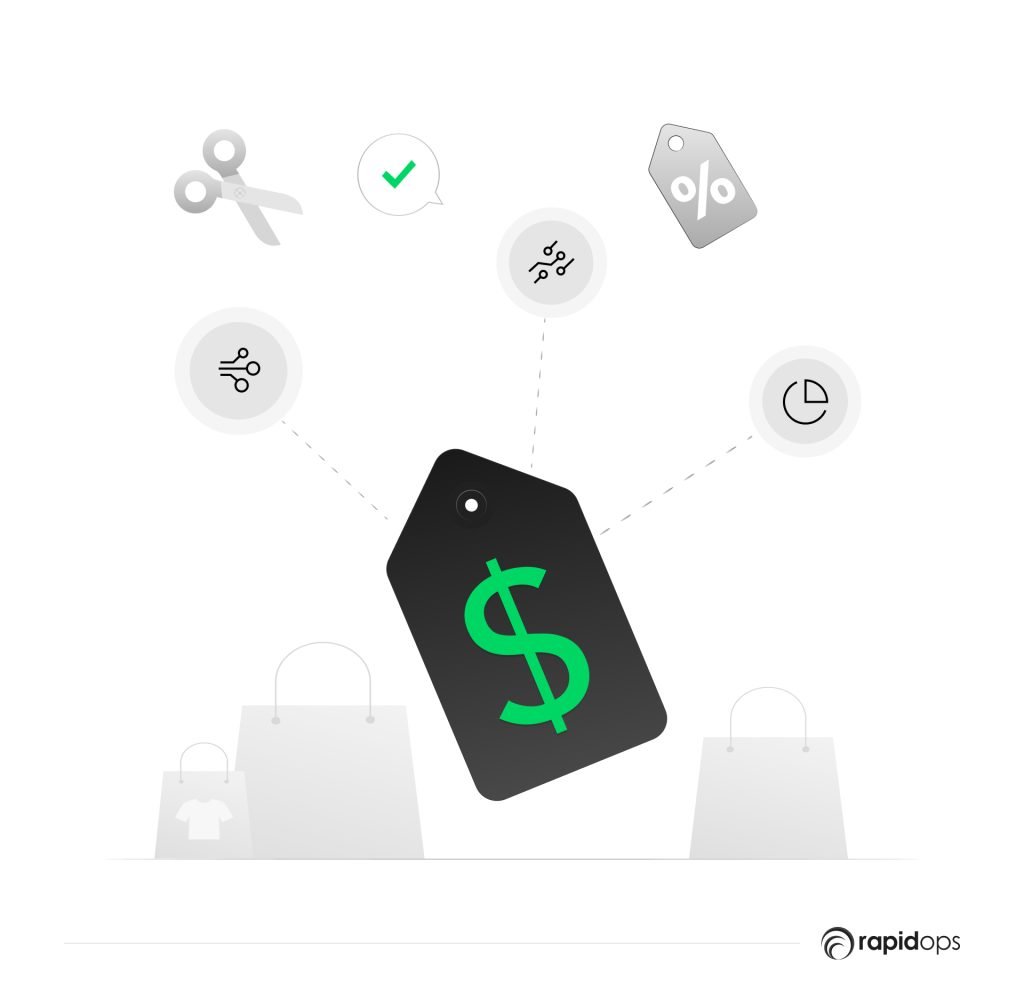
AI technology for retail stores also helps businesses set competitive prices for their products to thrive in the market. It helps retail business owners visualize the likely outcomes of multiple pricing strategies. With the help of advanced and predictive analytics, it can -
- Crunch the transactional data within seconds
- Read the pricing data of the product
- Analyze past transactions and price drops
- Check the promotional activities
- Analyze previous sales figures
The insight generated by retail analytics allows retailers to keep their product pricing at par with their competition to generate better profits within the same threshold.
eBay and Kroger are using Artificial Intelligence for their price optimization, which allows them to stay flexible with product pricing and promotions.
5. Virtual trial rooms
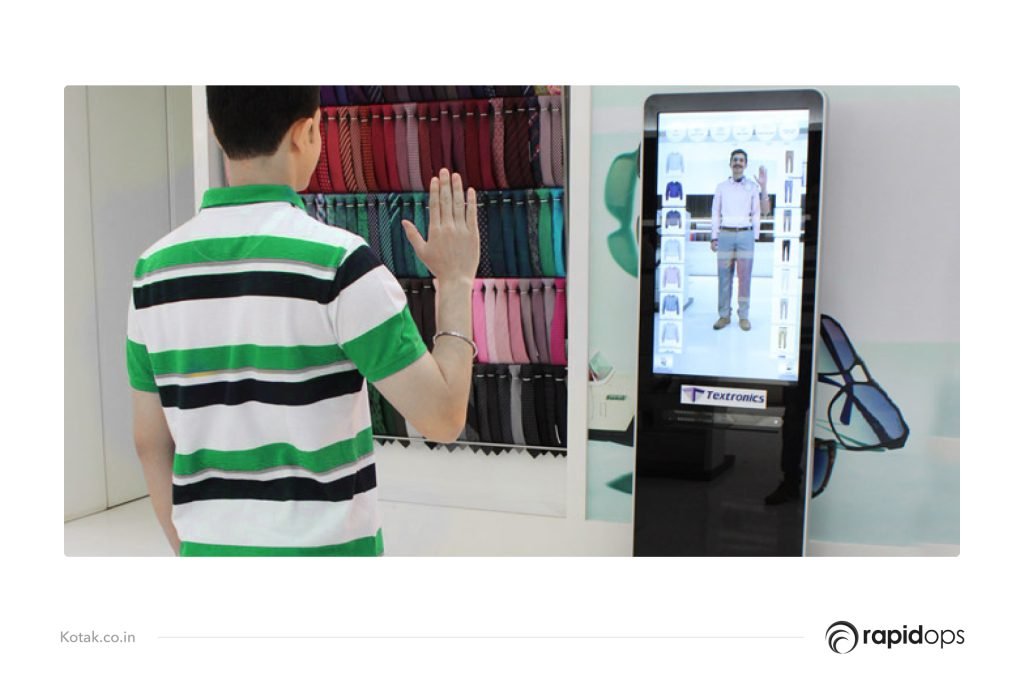
With virtual trial rooms, customers can shop from the comfort of their homes while still receiving professional fashion advice and suggestions. It saves time, and money typically spent traveling to the stores. In just a few minutes, customers can find their perfect attire.
By providing them a real-time picture of what would fit them, Levi's, Gap, Brooks Brother, Old Navy, and others ran AI scanners in their stores and received significant profits from the same client base.
They work in the following manner: customers submit images of themselves and the clothing they want to try on via their phones or tablets, which are then processed and provided as accurate representations of what it will look like without even trying it.
This makes the whole procedure easy and effective, with no in-store mess.
By integrating AI-powered chatbots, retailers can significantly enhance the customer experience in retail through hyper-personalized interactions and timely support.
Concluding thoughts: Artificial intelligence in retail is critical for process efficiency
Digitization, for example, can open up new logistics and sales-fulfilment possibilities (such as click-and-collect and drive-through), spur creative ways to acquire new customers, and assist forecast and manage inventory in order to build a more resilient supply chain.
Going digital will help company's sales, but it also helps restructure operational costs to be more efficient.
Data will play a vital role in enabling all of this to happen. Transparency, governance, and accuracy of these data sets become critical when retailers start driving their businesses based on analytics.
AI adoption in retail helps your customers indulge with your offerings coupled with an enhanced experience.
Many retailers are already experiencing immense success after AI implementation, and we want to help you place yourself as a strong competitor in your domain with our AI expertise.
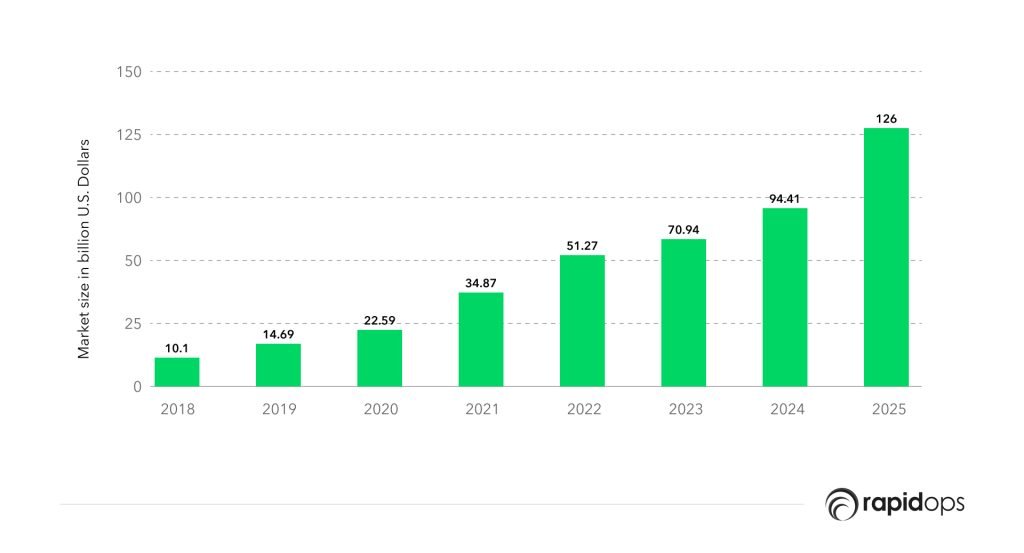
According to Statista, the global artificial intelligence (AI) software market is forecast to increase in the coming years, reaching around 126 billion U.S. dollars by 2025.
Meanwhile, marketing research firm Tractica predicted that global AI revenues will grow from $643.7 million in 2016 to $36.8 billion in 2025.
Rapidops has solved unique business roadblocks with its technology stack and AI and ML expertise. We are always excited to bring the best experience to our clients, solve their operational issues, and transform their businesses.
So, if you want to disrupt your processes and transform your retail business by going digital, let us help. We already have established ourselves as facilitators of retail intelligence that boosts efficiency and scalability.

Saptarshi Das
Content Editor
9+ years of expertise in content marketing, SEO, and SERP research. Creates informative, engaging content to achieve marketing goals. Empathetic approach and deep understanding of target audience needs. Expert in SEO optimization for maximum visibility. Your ideal content marketing strategist.

Let’s build the next big thing!
Share your ideas and vision with us to explore your digital opportunities
Similar Stories
- AI
- 4 Mins
- September 2022

- AI
- 9 Mins
- January 2023


Receive articles like this in your mailbox
Sign up to get weekly insights & inspiration in your inbox.
